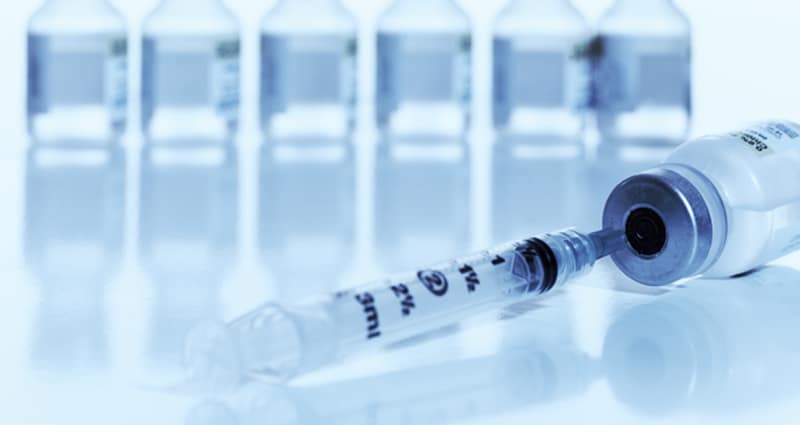Medical Advisory: Just How Important Are Travel Immunizations?

According to the World Health Organization (WHO), “progress towards the global vaccination target for 2015 is far off track “and WHO is “calling for renewed efforts to get progress back on course”.
Immunization alone can prevent between two to three million deaths every year.
Travelers are susceptible, even when traveling domestically, and may contract unpleasant but vaccine-preventable diseases such as measles, typhoid, or hepatitis A. For example, a single case of measles on a flight can quickly become a major problem. Suddenly, a productive and successful business trip turns into a medical illness that could so easily have been avoided. The risk of infection is heightened in remote locations where many people work and live close together. Not only can business be affected but, the recent outbreak of measles in an amusement park is an example of how vacations can also be ruined if people are not adequately protected.
“Vaccinations even protect those who have not been immunized”, says MedAire’s Global Medical Director, Dr. Paulo Alves. “This is known as ‘herd protection’. The chances of transmission of a certain disease within a community decreases as more people are protected by vaccination.”
With the right precautions and vaccinations, these diseases can be avoided. By preparing yourself or employees for travel in unfamiliar and remote locations, you can avoid loss of time and productivity. Be pro-active and seek specific advice and support for medical and security risks, no matter where you or your crewmembers may be located. Specialist teams from ground-based assistance companies, like MedAire, are working around the clock to keep passengers and crewmembers protected 24/7, 365 days a year.
“Protecting travelers is also a matter of international public health”, adds Dr. Alves. “Preventable diseases have been reintroduced in countries where they were previously eradicated”.
Pre-Travel Recommendations:
- Assess and understand the risks of exposure at your destination: Analyze any location you are traveling to and ask for recommended measures that help mitigate risks.
- Educate travelers before they depart: Prepare them for the local situation, as well as advise them on measures to take should the situation deteriorate.
- Around-the-clock access should be available to travelers for specific local advice. Qualified doctors and security specialists should be accessible to your crew and passengers, no matter where or when they are traveling.
- Stay connected with your travelers and keep track of them in high-risk locations. Make sure they receive the latest information and are prepared at all times.
What are vaccines?
Vaccines are preparations that protect a person from getting sick from specific diseases. They usually contain a tiny piece of the disease-causing germ, or a variant of the germ, that is dead or very weak. Not all diseases have a vaccine. For example, there is no vaccine to protect people from HIV/AIDS or malaria. But, there are effective vaccines for many other illnesses, such as influenza, measles, tetanus and hepatitis B.
When you receive a vaccine, your body produces antibodies to it. These antibodies stay in your system and make you “immune” to the disease contained in the vaccine. This means that if your body encounters the disease in the future, it is already prepared to fight it off and should keep you from getting sick.
Information, advice and assistance
- First, when traveling it is important to have up-to-date, reliable information about diseases that can affect you or your employees while traveling or at work. Identify which diseases are preventable by immunization or other means of protection. This information can be obtained from your medical provider: including transmission, symptoms, treatment and prevention. Identify the levels of risk posed by specific diseases, country-by-country before travel. Obtain Aviation Travel Medical and Security briefings for your crew and passengers prior to your trips from your ground-based assistance company.
- Second, research your destination. Contact your providers before, during or after traveling with questions. And ensure that prior to traveling, arrangements have been made to speak directly to medical experts, if necessary or to discuss any concerns.
Vaccination Programs
- Business travelers should be vaccinated before traveling. However, vaccinations are often available at local medical clinics and facilities for those living in the area.
- Vaccinations are often overlooked. Companies should meet their duty of care obligations to their travelers and protect their business by ensuring proper procedures are in place. Always check that your crewmembers and passengers are up to date with their vaccinations – a few minutes now can save serious disruption later.
MedAire, Inc., an International SOS company, supports WHO’s call to close the immunization gap by raising awareness through global health and safety activities.
For more information, contact:
www.medaire.com or www.who.int/campaigns/immunization-week/2015/en

Flight departments around the world rely on MedAire, an International SOS company, to reduce their travel safety risks. Crews are trained on the resources to manage in-flight illness and injury with onboard medical equipment and telemedicine assistance. On the ground, passengers and crew have one resource for medical referrals; guaranteed payments for medical expenses; assistance with lost documents and prescriptions; online and e-mail travel advisories; evacuation support and a host of other services.
http://www.medaire.com/
© 2025 MedAire Worldwide. All Rights Reserved.
Next ArticleRelated Posts

Navigating Geopolitical Uncertainty Using Business Aviation
Bigger business jets mean bigger fuel tanks, longer trips, more border crossings, and bigger wallets! With an equipment upgrade also comes the requirement for a knowledge upgrade.

Leadership, Accountability and Your Organization’s Risk Profile
Recent media attention has cast light on the unusual number of aviation system-related accidents, incidents and near-misses that have plagued our industry over the past several months.

